We’re going through our annual experience of looking back on the past, remembering our war dead, especially from the two great conflicts of the last century, everyone sporting the now traditional red poppies and giving over their little donation to support surviving injured servicemen and women.
Each year at remembrance services those words “we will remember them” are repeated, and it’s the imperative lesson of history that, if we are to grow and change for the better, we must remember the failures and follies of the past.
Our new information age surely makes it all the more impossible to forget our story as a global society.
However, I won’t be wearing the little paper flower today: I now dislike this symbol of a particular kind of remembrance. The nature of that was summed up pretty well by Satruday night’s Festival of Remembrance on BBC1 which was attended by royalty, senior politicians and all the great and the good of the establishment.
This was a festival indeed, a celebration of everything purported to be superior and significant about the British and allied armed forces and their various efforts in conflicts over the last century.
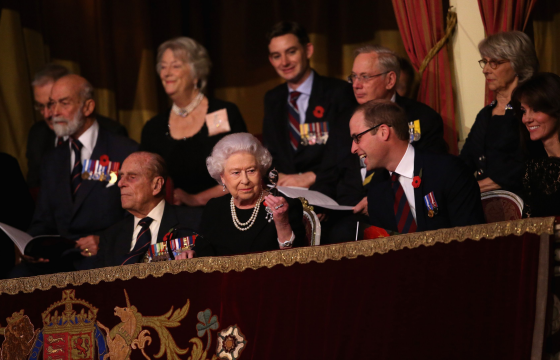 The Queen and Prince Philip were among the guests at the Festival of Remembrance at the Albert Hall (PA)
The Queen and Prince Philip were among the guests at the Festival of Remembrance at the Albert Hall (PA)
And I suppose it’s exactly there that my issue lies.
Rather than an act of remembrance of the dead, of their sacrifice and the horrible loss of life, it was a celebration of the virtues of war, of valour rather than courage, service to country before sacrifice to fellow man, martial honour before love, justice or peace.
What have the conflicts of the last century taught us?
Surely fascism had to be stopped, but could it have been stopped without war?
The First World War was an over-complex outcome of various pacts, agreements and military conventions that, at its end, saw the victors punishing the defeated.
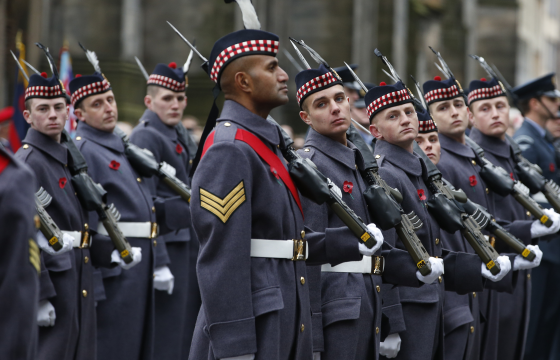 Soldiers line up in Edinburgh ahead of a minute's silence on Remembrance Sunday (PA)
Soldiers line up in Edinburgh ahead of a minute's silence on Remembrance Sunday (PA)
Germany was humiliated and driven into the ground.
That humiliation gave rise to the angry, indignant German population that voted in the Nazis in 1933 and set us all on a path to war once more.
Punishment is a concurrent theme in conflict.
After 11 September 2011, the West responded to extreme violence with extreme violence.
It failed to garner its ultimate aim.
The US and its allies’ excessive punishment not only of violent men but of civilian populations and proud nations, directly fuelled the instability that now threatens to overrun the Middle-East.
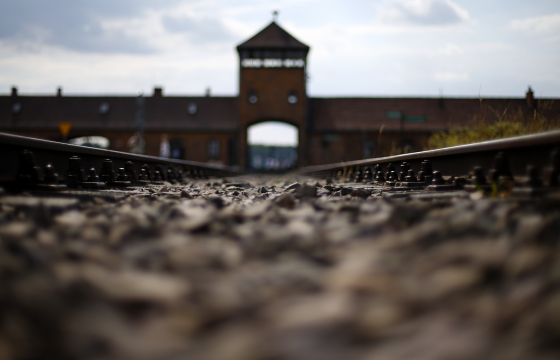 Fascism was so utterly grotesque that surely it was impossible to stop atrocities like Auschwitz without violence? (PA)
Fascism was so utterly grotesque that surely it was impossible to stop atrocities like Auschwitz without violence? (PA)
This idea that violence, anger, aggression, derives a “right” to punish, is utterly foolish, and only leads to greater violence. The deaths of those who have fallen in war are made beacons of this virtue and the symbols of our pride and importance as a nation.
What a shame.
We must remember the fallen, and weep for every one, recognising that each of those lives represents not the apex of humanity, not its achievement and honour, but rather its abject and terrible failure.
How should we respond? After all, the sacrifices of those wars have no meaning if they do not lead to a future that is better.
Rather than remembrance in the form that we have come to know it, can we not begin to look forward rather than backward?
Instead of martial self-indulgence perhaps we can find a new language of remembrance that looks towards a future of peace.
Are there ways that we can envision a future where, genuinely, war is itself an act inconceivable to man?
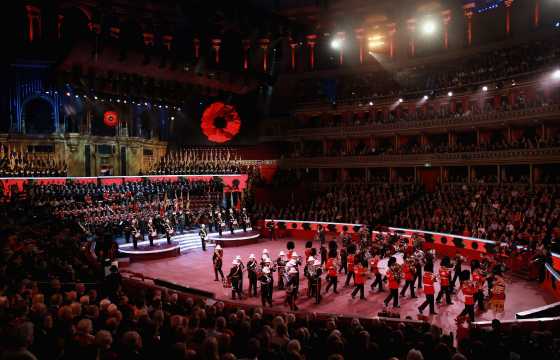 The pageantry of militarism is a major theme of remembering the dead (PA)
The pageantry of militarism is a major theme of remembering the dead (PA)
Perhaps. There is after all a mentality attached to aggression that is not a necessary fact of humanity. As such, there is the conceivable ability to bring about change in the way we live with each other in our increasingly universal community.
Absolutely nothing about this is simple. There is no easy solution, and human beings are stubborn, foolish, temperamental, unwilling creatures.
But there are ways: slow, simple, small and often initially almost impossible to put into action, that can begin to turn the tide.
Crucially, in the era of global communication - as we can transform a thought from one side of the world to another in the blink of an eye - the capacity for a good idea to bring about real change is greater than ever.
It would better honour the memory of our fallen were we to look to a future where their descendants no longer succumb to anger and hatred.
We need a language of remembrance that looks to a future of peace: not forgetting, but neither celebrating our history of war.
Simon Bolton-Gabrielsen is a Catholic freelance filmmaker from Yorkshire. He was part of a small group of filmmakers who won a student Oscar last year for the film, Border Patrol
KEEP UP TO DATE ON TWITTER AND FACEBOOK...
Follow all the latest news and events from the Catholic world via The Tablet's Twitter feed @the_tablet
Or you can join in the debate at our community page on Facebook

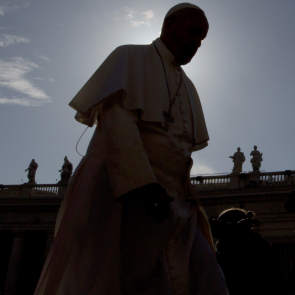
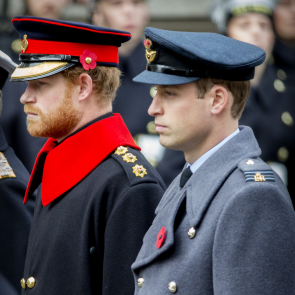

 Loading ...
Loading ...
What do you think?
You can post as a subscriber user ...
User comments (1)
Its funny but this is not how I see Remembrance Sunday at all and wonder if it is a generational thing.
I see no glory or pomp.
I see 25,000+ people including royalty, politicians and military - not to mention thousands of spectators - saying the Lords Prayer together.
Surely this is a reason to celebrate in our 'pagan' culture today?